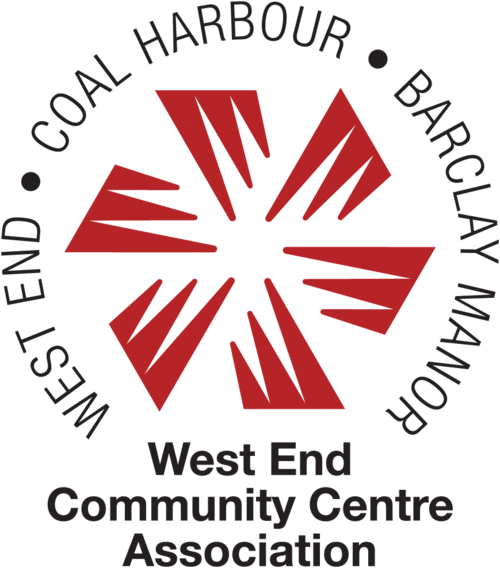A CLOSER LOOK
/From older stock to high-rises, housing in the West End is easier to find that in previous years, but still presents challenges.
FINDING A WEST END HOME
Changes In The Law Will Address Some Major Issues
A check of the ample online West End apartment rental listings during this pandemic makes it seem like it is a buyer’s market for potential residents, with many landlords offering rare incentives in a neighbourhood known historically for low vacancy rates.
Several MetCap Living buildings are offering six-months free parking plus a $500 signing bonus on a new lease for a new home. A Cap Reit building on Broughton is offering a month’s free rent plus a deal on your cable bill. The new Shoreline on Comox (former Coast Plaza Hotel) is also offering a free month move-in incentive. Hollyburn residents are being offered rent discounts for referring new renters.
Also, research data from online rental site PadMapper suggest that average rents are at record lows during this pandemic. According to March numbers, a one-bedroom in our city will cost you around $1,900 a month, a 2.1 percent drop from February. The average rent hasn’t been that low since March of 2017. Two-bedrooms remained flat according to PadMapper at $2,630.
However, Vancouver remains the country’s priciest market in which to be a renter, with Toronto in the number two spot.
Suzanne Steele lived abroad for most of 15 years and returned to Vancouver to find a great although tiny West End apartment in a heritage building. “It was really inexpensive. The apartment was exceptionally well run but we outgrew it.”
The search was on for a new, pet-friendly apartment and although she discovered many listings, Steele found they were pricey. “Because of the plethora of apartments, many companies are offering 'deals' or incentives. They are doing this rather than lowering the rent, which is too bad. I know in our old apartment, that the minute we move out, the rent will be raised 30 percent and that's too bad,” she says.
Luckily, Steele landed a new apartment fairly quickly but says she’s paying a premium even with incentives. “We are, however, really happy with it as it is clean, modern, well-run, and has amazing views of the water and mountains. But I cannot imagine a family with children looking for an affordable apartment here.”
The Vancouver Tenants Union has been a strong voice for tenants with rallies, petitions, and lobbying efforts. (Ryan Walter Wagner Photo)
Mazdak Gharibnavaz is a member of the Vancouver Tenants Union and agrees our city remains one of the most unaffordable in the world. The VTU helps organize renters to create communities, take care of each other and fight for a “human right to housing.” Gharibnavaz blames politicians for the high cost of rent. “Our governments' refusal to invest in non-market housing and reliance on market developers to shelter us means that our land value has exploded, and our rents are sky-high. Additionally, due to government policies to incentivize evictions, renters are under constant threat of losing their homes to demovictions and renovictions, especially if they live in old, affordable, below-market-rate rental stock.”
West End - Coal Harbour MLA Spencer Chandra Herbert.
In early March, the province introduced a new bill aimed at protecting renters from being evicted during a renovation. It’s expected to become law in July.
West End MLA Spencer Chandra Herbert helped craft the new law as head of B.C.’s Rental Housing Task Force. “I’ve helped many residents stop renovictions in too many apartments in the West End to count. But renters shouldn’t have to fight bogus renovictions, just because their landlords want to kick them out, put on a new coat of paint, and then double the rent. That stops with this bill. The law will now be clear that in B.C. we expect landlords and renters to work together when repairs need to be done, and that renters have rights to secure housing.”
But Gharibnavaz calls the new renoviction protections a “marginal improvement” at best. “The B.C. government decided to legalize and regulate renovictions as a business model when we asked them to end it. With lobbyist organizations on board with such schemes, renters shouldn't be confused by whose interests are being protected with these laws.”
He adds that renters are bearing the full brunt of the economic damage of the pandemic. “At the end of the day, we must end the financial incentive to evict renters from their homes. That means real rent controls that tie the increase in rents to the unit and not the tenancy, otherwise known as Vacancy Control. This means that landlords would no longer be able to evict a tenant and jack up the rent to any amount that they would like,” he adds.
Chandra Herbert is adamant West Enders should feel more secure in their homes with this new legislation. “With this legislation, we stop renovictions, freeze rents until 2022, keep rent increases to the rate of inflation after that, and give greater powers to stop illegal evictions, stop fraud, and make being a renter and landlord more fair and secure. In addition, we’ve banned the fixed term rental con which was leading many West Enders to either face rent increases of 50 percent or eviction, and eliminated the geographic area increase clause which had been hitting West Enders with up to 73 percent rent increases.”
The Vancouver Tenants Union believes the COVID-19 emergency has reinvigorated the debate over social housing and affordable housing in our city. “The pandemic has laid bare the inhumanity of our for-profit housing systems, and tenants understand that when the bottom-line interests of large corporations and wealthy property investors clash with our human right to housing, we can only rely on each other to keep us safe,” says Gharibnavaz.
Chandra Herbert is proud of his government’s response to renters during the pandemic. “I’ve heard real relief from seniors in particular for the extension of the rent freeze until 2022, and for capping rent increases to inflation. Even though it’s meant some re-writing of post-dated cheques, what seniors tell me is that it means there is more money for good food, for family, or for a rainy day. As one senior put it to me, it means she can live in her home for as long as she wants now and will not be forced out of her community because of cost. The pandemic hit people hard, and the rent freeze and rent relief has really helped when they needed it most,” he says.
During her search for a new apartment, Suzanne Steele found out a person she knows fell victim to a rental scam. “They arranged to rent a room in an apartment in the West End and gave her new roommate a $500 deposit. They then returned to get the key a week later and nobody had heard of the 'roommate'. Awful.”
The West End Journal asked the Better Business Bureau about the prevalence of rental scams in our neighbourhood and across the city.
The Better Business Bureau’s Karla Laird warns of several types of rental scammers.
Karla Laird with the BBB says they’re routinely seeing several tactics to get your money through a “tremendous volume of bogus rental listings” online with young people usually the victims. “Scammers take pictures from realtor websites or from postings by homeowners, along with details about the property and use that information to create their own rental ads targeting potential renters. We are seeing where many of these ads are on Craigslist and Facebook Marketplace. In some cases, the scammers may even create websites with several fake listings and contact information that leads potential renters right into their hands. When you ask to view the property, they may try to work out a deal with you over the phone instead. Reports from victims share that the scammers insist that because of an emergency or circumstances outside of their control, and also because of the pandemic, they can't meet in person or facilitate a viewing.”
Laird says scammers also post ads and when potential renters reach out, you get a bogus rental/lease agreement. “The documents look professional, may have information for a realtor, are grammatically sound and ask for various personal details to help with the 'verification process’ for the rental. This allows them to get details they can use to steal someone's identity. The professional approach also makes potential renters feel confident in the process and end up not realizing that they are being asked to pay a security deposit and first month's rent by wire transfer.”
So, what should potential renters be aware of when looking for new digs? Laird advises you look for a rental price not matching up or just too good to be true, vague details in the listing, a landlord seeming way too eager to lease the apartment (not really worried about screening you), a demand you wire the money (surest sign of a scam), wanting a security deposit or first month’s rent before you’ve met or signed a lease and claiming to be out of the country or cannot meet because of COVID-19 protocols.
“This is a common ruse that scammers like to use. However, to handle the disappointment, they put forward a plan to keep the rental process going. It might involve a lawyer or an “agent” working on their behalf. Some scammers even create fake keys.”
MLA Spencer Chandra Herbert says the new residential tenancy rules coming in July will help tackle some of these issues. “We have a compliance and enforcement team which is getting new, stronger powers to investigate and stop fraud with this legislation. I am hoping that with real teeth behind the law, people will think twice before trying to game the system. Renters should feel secure in their homes, and there should be repercussions if someone breaks the law and takes that security away. I look forward to seeing the difference they make,” he says.
The West End Journal asked on our Facebook page about renting experiences including the often very stressful adventure of finding a new apartment in our neighbourhood. Silvia Bon said the part that concerned her was giving a full month’s notice to the place you are currently living in. “But usually, rentals are posted to be occupied within less than 30 days. Due to the competitiveness to find a place, the landlord will give preference for whom can occupy the earliest. That basically leaves you with two choices: lose the deposit from the current place, since you will give less than a month's notice, or give the notice without having found a new place yet.
“That’s what I’ve done the last time, and boy, that is so stressful. You have one month to find a place. Actually, in practice is just two weeks, because if the options you find in the first two weeks are not good for you, it’s very unlikely that new rentals will be posted in the second half of the month.”
Other posters felt “walking the streets” and “getting on a waitlist” was the best way to find a new home.
Despite the joy of finding a new apartment in the West End, Suzanne Steele senses great changes could be coming. “Walking around the West End since we returned, I noticed many of the wonderful old heritage buildings are really being let go. I suspect this is on purpose, that the holding companies or owners are waiting until they are too far gone, and they will be 'redeveloped' and thus they are not being painted or cared for. Our last apartment in the West End, though staffed by an amazing manager and assistant, desperately needs to have the interiors and exterior repainted, and kitchens updated,” she says.
Steele is hoping the neighbourhood doesn’t change too much. “In the worldwide context, our apartment is actually quite affordable if one compares it to something comparable in Paris, London, New York. But that doesn't help the typical working family struggling here in the West End. I firmly believe one of the best aspects of the West End is that it is very much mixed-income with many configurations of families and individuals.
“The West End is still very much a neighbourhood in comparison to where we last lived which was basically a place made up of all the same type of person, fairly affluent.”





